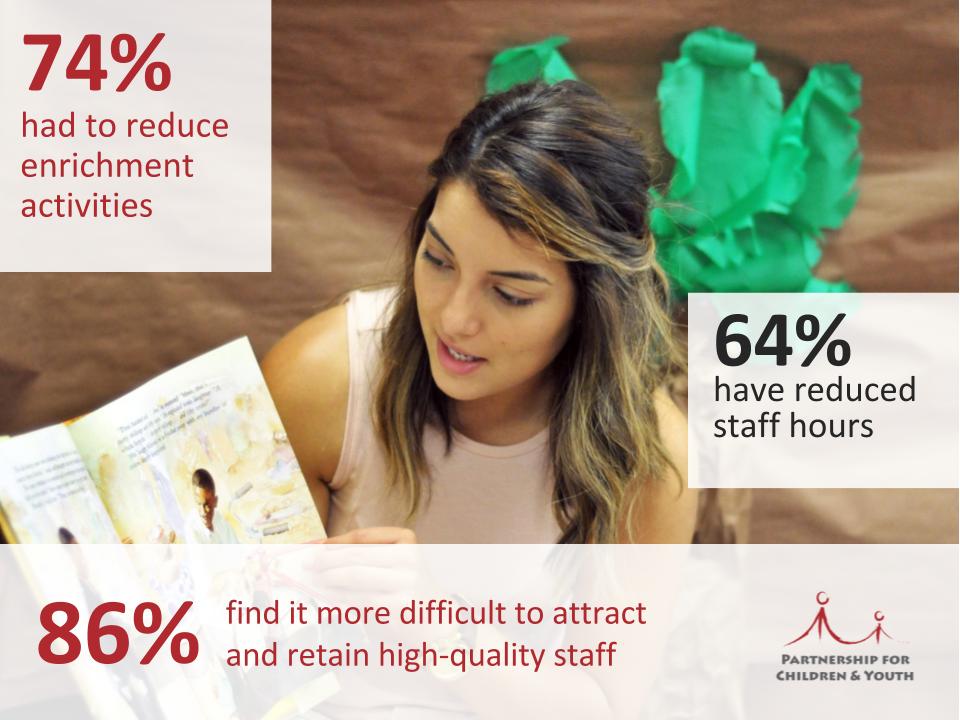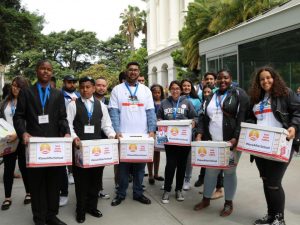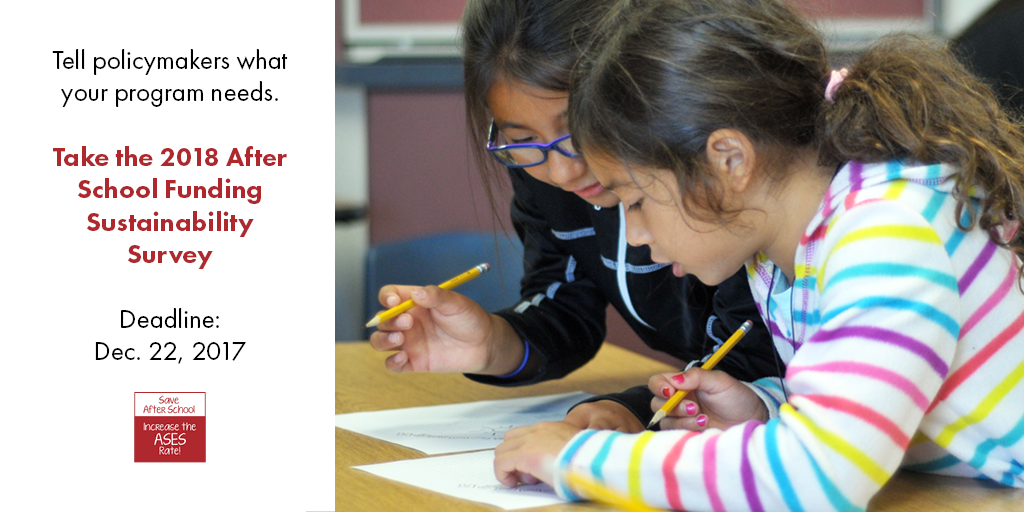Why does advocacy matter?
Did you know that 1 out of 3 students in California can’t identify a single caring adult at school? [1] Research shows that access to caring adults is critical for the development and success of youth, and expanded learning programs often provide these relationships that students depend on. [2] Advocating for these programs increases access to caring adults and safe spaces in and out of school that are necessary to support student success.
In 2015 and 2016, the Partnership for Children & Youth (PCY) conducted two surveys seeking input from after school site coordinators, directors, and administrators from across the state about the impact of inadequate state funding for their programs. We heard back from over 600 respondents and learned that across the board, the stagnant funding for California’s After School Education and Safety (ASES) program was impacting our workforce and our kids. Staff turnover was a huge issue, as benefits and hours were being cut; program quality was suffering as professional development, services, and enrichment activities were reduced; and program waitlists were growing.

PCY used the results of these surveys to bring the voices and experiences of the field directly to policymakers. Through these compelling statistics and stories, we were able to demonstrate the need for increased state funding for after school. These surveys were vital to the success of our campaign and that’s why we need to hear from you again.
Now that we’ve addressed why advocacy is important, what is advocacy anyway? I’d like to dispel a myth that I often hear.
MYTH: “My job is focused on working with kids, not politicians. Advocacy is for the policy experts or elected officials.” This is FALSE.
FACT: Advocacy is about educating and building awareness. Part of all of our jobs is to serve students and communities – this includes making sure that decision-makers and other stakeholders understand the essential role of caring adults and safe spaces. These stakeholders include a wide array of people like community members, school boards, public officials, principals, parents, teachers, and even students.
You are the experts about the kids and families you serve. As educators, you see firsthand what students and their families need to thrive. You do not need to be an expert about the legislative process to know what can help the kids and communities you serve. We change established power dynamics when we step up as advocates; instead of receiving and reacting to policy, we are shaping it.

Over the past two years, thousands of Californians joined the Save After School Campaign and took action to secure an additional $50 million in state funding for after school in 2017 – the first increase in over a decade. This was the culmination of lots of smaller actions taken by youth, families, providers, and other advocates. Youth and providers testified at legislative hearings, dozens of programs held site visits, 450 people signed our letter to the Governor, over 2,400 people signed our petition, and we delivered 10,000 postcards directly from youth, staff, and families to the Governor’s office.
While essential to keeping the doors open in 2018, this funding increase was only half of what we requested. In order to continue the conversation with policymakers, we need to let them know if and how the additional funding has benefited programs, and to inform them if additional action is needed to address the remaining financial need.
2018 After School Funding Sustainability Survey
The Partnership for Children & Youth and the Save After School Campaign have released the 2018 After School Funding Sustainability Survey, a critical step in advocating for expanded learning programs. Whether you’ve already participated in some of the advocacy activities over the past couple of years, or if this will be the first step, we need to hear from you. Your voice is critical to help support after school programs in California.
The more people who complete the survey, the stronger our ability to support the needs of programs and students. Please take 10 minutes to complete the survey, and share it with your after school peers and networks throughout California.
To learn more about the Save After School Campaign and more actions you can take to support after school, go to www.saveafterschool.com.
PS. As a thank you for your time, you will also be entered into a drawing for a $50 VISA gift card. It’s a win-win!
Author: Jessica Gunderson, Senior Director of Policy and Communications, Partnership for Children & Youth
[1] 2013-15 California Healthy Kids Survey.
[2] Jenny Nagaoka et al., Foundations for Young Adult Success: A Developmental Framework (Chicago: University of Chicago Consortium on Chicago School Research, 2015).
